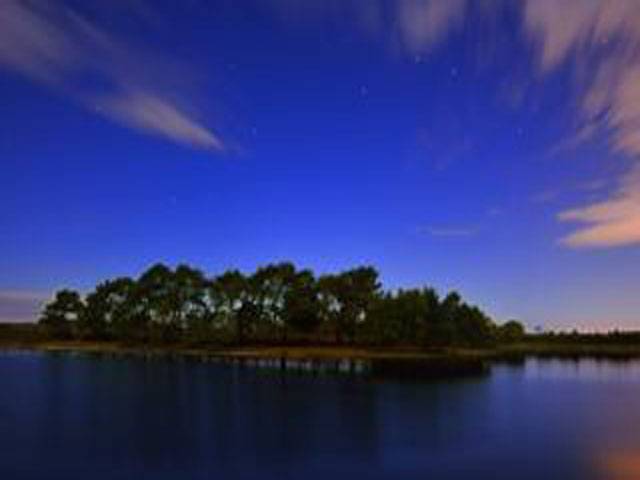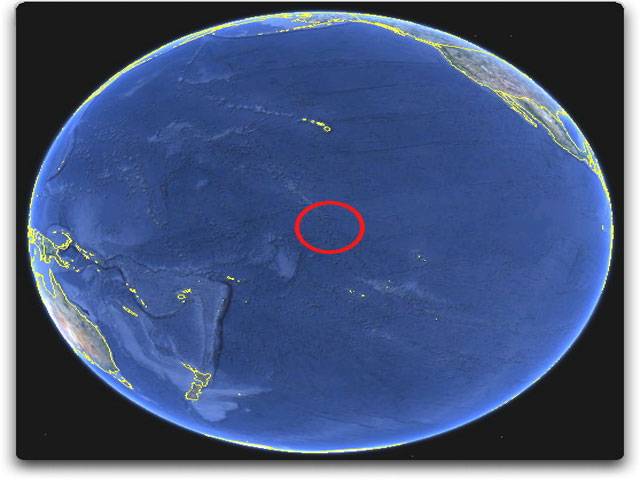Night in national park ‘for every schoolchild’
LONDON (BBC): Every schoolchild in England should get the opportunity to “spend a night under the stars” in an idyllic landscape, an independent review has suggested.
Helping pupils connect with nature through visits would ensure protected areas such as national parks are “open to everyone”, the review’s author said.
Julian Glover was asked to review England’s 70-year-old national park system and areas of outstanding natural beauty by the environment secretary. He says they need to be “re-ignited”. Glover’s review says challenges such as climate change, biodiversity loss and a trend towards increased urban living mean fresh ideas are needed to give England’s protect landscapes new purpose. Among his recommendations are a National Landscapes Service to act as a unified body for the country’s 10 national parks and 34 areas of outstanding natural beauty, and a 1,000-strong “ranger service” to help engage the public.
Glover, a journalist and former government aide, suggests overnight school trips would help pupils understand more about the natural environment, and he recommends new protections and funding to help improve beautification. And he said a new national park should be created in the Chilterns, with a new “national forest” in Nottinghamshire to fight climate change.
Glover said: “If we take action, we can make our country healthier, happier, greener, more beautiful and part of all our lives.
“Seventy years ago this year we created our national parks for a nation that had just won the Second World War. Now it’s time to reignite that mission.”
The review was commissioned by former Environment Secretary Michael Gove in May last year.
Environment Secretary Theresa Villiers told BBC Radio 4’s Today programme Mr Glover’s recommendations would be “carefully considered” by the government, with new funding debated “in the future”.
She said: “We think it’s an excellent report and we’re going to be carefully considering its recommendations.
“There are a lot of great ideas which are consistent with our determination to remedy the disastrous loss of biodiversity and nature habits we’ve experienced in this country over recent years.”
Villiers said Mr Glover’s idea to have school visits to protected landscapes echoes the government’s aims.
Corinne Pluchino, Chief Executive of Campaign for National Parks said: “We welcome the timely publication of this ambitious agenda for our most beautiful landscapes.
“There is an pressing need to address the urgent challenges in our National Parks. We will be reviewing the report in detail and will be working to ensure the momentum is maintained.”
Chinese quantum satellite used to test basic theory
WASHINGTON(Xinhua): An international team led by Chinese scientists used a quantum satellite called Micius to test why quantum mechanics and the general theory of relativity, two bedrocks in modern physics, don’t work together.
The study published on Thursday online in the journal Science partially ruled out a hypothesis that the entangled particles would decorrelate from one another as they passed through separate gravitational regions of Earth.
According to Albert Einstein’s relativity theory, physical phenomena rely on relationship of motion between the observed and the observer.
Certain rules hold true across types of observed objects and those observing, but those rules tend to break down at the quantum level, where subatomic particles behave in strange ways.
The hypothesis called “event formalism,” proposed by Timothy Ralph at the University of Queensland, claims that the coherence of two entangled photons will be probabilistically decayed when transmitted through the gravity field of the Earth.
It attempted to present a coherent description of quantum fields as they exist in exotic spacetime, but it has never been tested.
Researchers can examine the relationship with quantum and classical physics using light experiments in China’s satellite Quantum Experiments at Space Scale (QUESS) or Micius.
“For the first time in human history, we managed to perform a meaningful quantum optical experiment testing the fundamental physics between quantum theory and gravity,” said the paper’s co-author Pan Jianwei at the University of Science and Technology of China.
The researchers used the satellite to produce and measure two entangled particles: one particle transmitted on the surface while the other passed through the planet’s gravity field toward a satellite 500 kilometers above Earth.
“If we did observe the deviation, it would mean that event formalism is correct, and we must substantially revise our understanding of the interplay between quantum theory and gravity theory,” Pan said.
By the experiment, the researchers ruled out the strong version of the hypothesis as they did not see the obvious de-coherence rendered by gravity.
Now, Pan and his team are planning to launch a new satellite that will orbit 20 to 60 times higher than Micius to test a wilder field of gravity strength.







